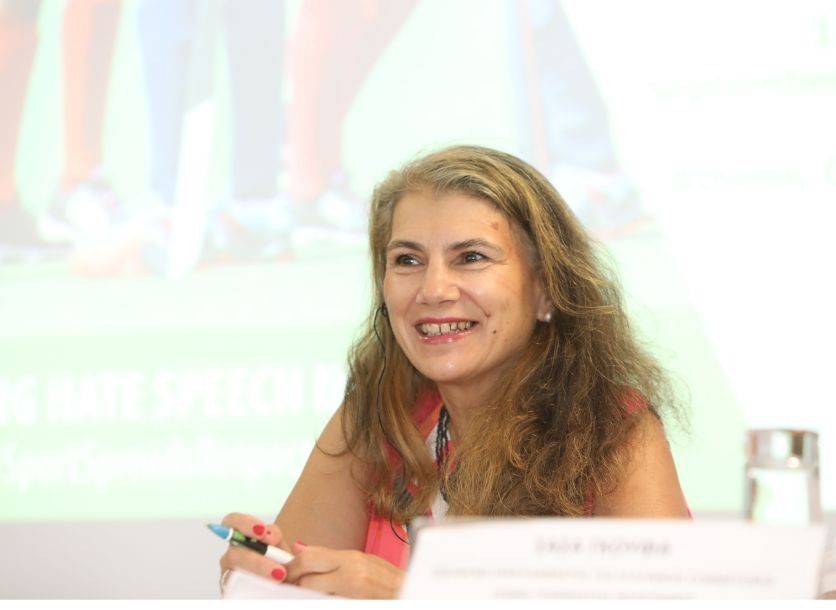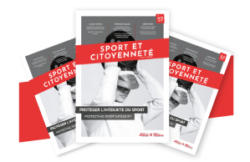Addressing hate speech in sport to build inclusive societies

In 2024 the Council of Europe/European Union joint project “Combating hate speech in sport” will be launching the #Sport IS Respect campaign in France, Germany, Greece, Italy, Montenegro and Spain. An article by Gabriela Matei, Head of the “Combating hate speech in sport” project at the Council of Europe.
In the dynamic world of sport, hate speech has emerged as a troubling symptom of deeper social tensions rooted in culture, economy, and politics. It is within the realm of sports that these tensions find expression, acting as a litmus paper to the issues that permeate our society. As we navigate this complex terrain, it is crucial to be cautious and responsive, recognizing that sport can either amplify these tensions or serve as a powerful tool for positive change.
Sport, as a microcosm of society, reflects the prevailing issues and challenges we face. It has the potential to be a catalyst for socialization and community building, but biased behaviors continue to plague the sporting world. These biases manifest in various forms, including discrimination based on color, language, religion, nationality, national or ethnic origin, age, disability, sex, gender identity, and sexual orientation. In terms of governance, sport is still a male dominated space. Racism in sport is a comprehensive issue that affects athletes, fans, and the reputation of sport leagues. Any incident can undermine the fabric of society as this signals to the minority they are not part of society, and they are excluded.
The latest incidents in football in Spain, in basketball in Greece, in Italy or during the 2023 Rugby World Cup in France showed that hateful behaviours are still widespread, that a firm action brings immediate results and proved the importance of prevention, the need for more effective punitive measures, the need for support of affected victims as much as the rehabilitation of perpetrators.
Despite the strides made toward inclusivity, it is evident that there is much work to be done. Sports organizations, stakeholders, and fans alike must collectively address these challenges head-on. The onus lies not only on penalizing and condemning hate speech but also on proactive measures to prevent its occurrence and foster a more inclusive sport culture.
The #Sport IS Respect campaign aims at being part of the solution fostering inclusion, diversity for professional and amateur athletes at national and local levels by creating sport spaces where everyone feels welcome and safe.
All those dimensions will be part of the strategic approaches that are being prepared with governments and stakeholders. Through the #Sport IS Respect campaign we acknowledge the scale of this issue and commit to being part of the solution.
 This article was published in the magazine Sport and Citizenship n°57 : protecting sport integrity
This article was published in the magazine Sport and Citizenship n°57 : protecting sport integrity







 INSCRIPTION
INSCRIPTION CONTACT
CONTACT FACEBOOK
FACEBOOK